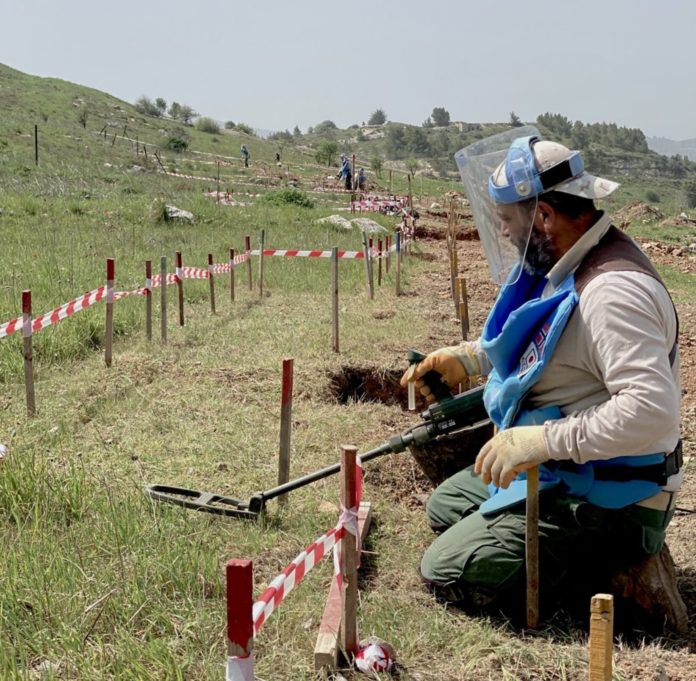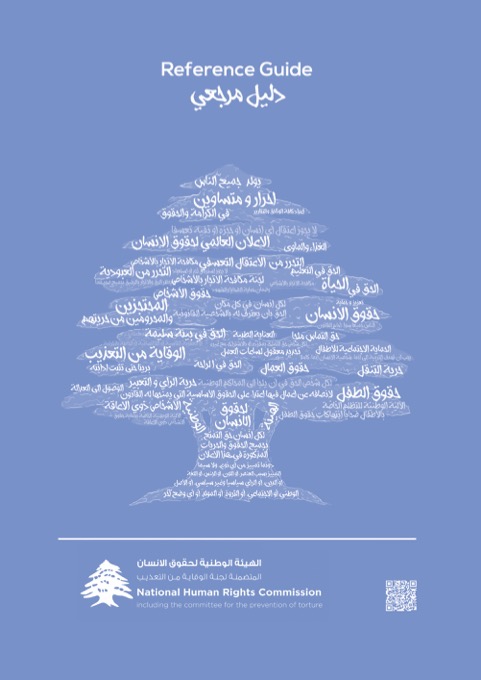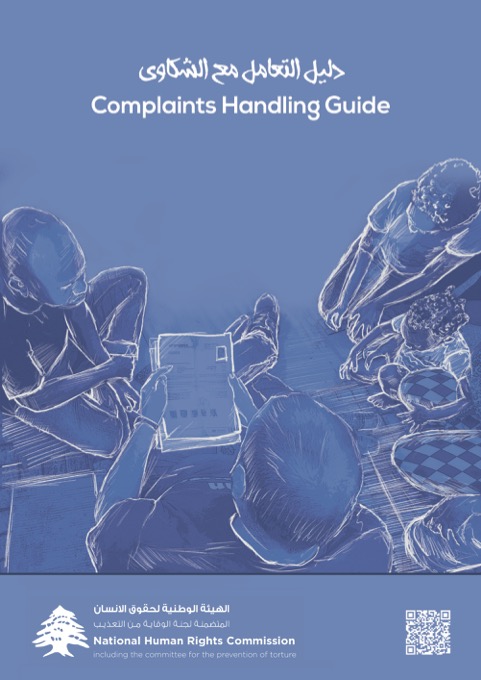هذه المقالة متاحة أيضًا بـ: العربية (Arabic)
The National Human Rights Commission, including the Committee for the Prevention of Torture (NHRC-CPT), continues to fulfill its legal mandate of monitoring and documenting human rights and international humanitarian law violations stemming from the Israeli aggression against Lebanon. This effort aligns with Article 16 of Law No. 62 / 2016, which calls for comprehensive measures to end impunity.
The Commission is investigating Israeli attacks to assess whether they were directed at military targets and adhered to the principle of proportionality. Following investigations into 107 incidents, the Commission has found credible grounds to believe Israel committed attacks on fleeing civilians, ambulances, and medical facilities, caused widespread displacement, and destroyed homes and property. The Commission determined that at least 70 of these incidents constitute war crimes.
The National Human Rights Commission has reported that it is conducting an intensive investigation into whether the Israeli military used banned cluster bombs for the first time since the beginning of Israeli attacks on Lebanon on September 23, 2024. The Commission has called upon the United Nations Interim Force in Lebanon (UNIFIL) to promptly provide documented photographic evidence or physical proof verifying the use of these bombs. This would allow examination and classification of the munitions within the list of prohibited cluster bombs, including the model and manufacturing date, as well as clarification of whether they were manufactured in Israel or by other countries.
Hezbollah’s media relations reported that on October 15, 2024, between 12:30 p.m. and 2:00 p.m., Israeli forces launched missiles containing internationally banned cluster munitions on Wadi al-Khanzir in Wadi al-Hujayr, as well as on Khalla Raj, located between ‘Alman and Deir Siryan, east of ‘Alman toward forested areas. Earlier reports also alleged the use of cluster bombs by Israeli forces in the area between Hanin and Tairi.
The National Human Rights Commission has urged residents to submit any evidence they possess of cluster bombs in their areas, assuring them of the Commission’s commitment to maintaining the safety, security, and privacy of those who come forward with such evidence.
Fadi Gerges, the President of the National Human Rights Commission, stated: “Launching cluster munitions in civilian areas is a war crime that causes innumerable loss of life and leaves countless injuries and suffering.” He added, “Cluster munitions are inherently indiscriminate weapons, and their use is prohibited under any circumstances by international humanitarian law. We reiterate our call for Israeli occupation forces to cease using these munitions and prioritize civilian protection immediately.”
Cluster munitions are launched by missiles or artillery and contain explosive submunitions spread randomly over a wide area. Many of these submunitions often fail to detonate, remaining on the ground as latent threats for years after conflicts end.
The indiscriminate deployment of cluster munitions across extensive areas and the risk posed to anyone who encounters unexploded remnants constitute violations of the ban on indiscriminate attacks.
“Launching cluster munitions in civilian areas is a war crime that causes innumerable loss of life and leaves countless injuries and suffering.”
Fadi Gerges, the President of the National Human Rights Commission
According to “The Landmine and Cluster Munition Monitor,” 219 people were killed or injured globally by cluster munitions in 2023. New injuries from cluster munitions were recorded in nine countries—Iraq, Azerbaijan, Laos, Lebanon, Mauritania, Myanmar, Syria, Ukraine, and Yemen—in 2023. Of the reported injuries in 2023, cluster munition attacks accounted for 118, while unexploded remnants caused 101 injuries. The impact of cluster munitions continues to disproportionately affect civilians and civilian structures, including schools, hospitals, and farmland. Civilians comprised 93% of the total reported casualties in 2023.
Since 2023, the number of countries producing cluster munitions has risen from 16—including Brazil, China, Egypt, Greece, India, Iran, Israel, North Korea, South Korea, Pakistan, Poland, Romania, Russia, Singapore, Turkey, and the United States—to 17, following Myanmar’s addition to the list of producers. None of these countries are party to the treaty banning cluster munitions.
Background
International humanitarian law, also known as the “law of war” or “law of armed conflict,” is a set of rules designed to limit the humanitarian impact of armed conflicts. It explicitly protects those not participating in hostilities or who have ceased to participate and places restrictions on the methods and means of warfare. International humanitarian law comprises international treaties and customary rules addressing humanitarian issues directly resulting from armed conflicts, whether global or non-international. The 1949 Geneva Conventions and their Additional Protocols of 1977 and 2005 form the core of this legal framework.
Several international treaties prohibit certain means and methods of warfare and protect specific groups and objects from the effects of hostilities. These include:
- The 1925 Protocol for the Prohibition of Asphyxiating, Poisonous, or Other Gases in Warfare.
- The 1954 Convention for the Protection of Cultural Property in Armed Conflict, with its 1954 and 1999 Protocols.
- The 1972 Biological Weapons Convention prohibiting the development, production, and stockpiling of bacteriological (biological) and toxin weapons.
- The 1976 Convention on the Prohibition of Military or Any Other Hostile Use of Environmental Modification Techniques.
- The 1980 Convention on Certain Conventional Weapons, alongside its five Protocols, restricts or bans the use of conventional weapons deemed excessively injurious or have indiscriminate effects.
- The 1993 Chemical Weapons Convention prohibited the development, production, and stockpiling of chemical weapons.
- The 1997 Anti-Personnel Mine Ban Treaty prohibited the use, stockpiling, and production of anti-personnel mines.
- The 2000 Optional Protocol to the Convention on the Rights of the Child on the involvement of children in armed conflict.
- The 2006 International Convention for the Protection of All Persons from Enforced Disappearance.
- The 2008 Convention on Cluster Munitions.
In addition to these treaties, customary international humanitarian law remains a crucial source for filling gaps in areas where treaty law does not apply.


